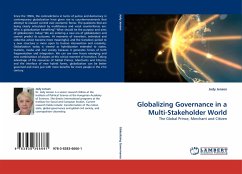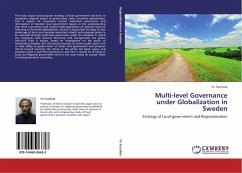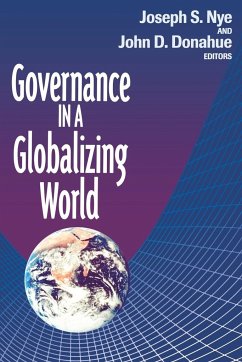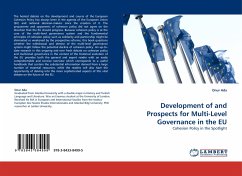
Globalizing Governance in a Multi-Stakeholder World
The Global Prince, Merchant and Citizen
Versandkostenfrei!
Versandfertig in 6-10 Tagen
39,99 €
inkl. MwSt.

PAYBACK Punkte
20 °P sammeln!
Since the 1990s, the contradictions in terms of justice and democracy in contemporary globalization have given rise to countermovements that attempt to reassert control over economic forces. The questions that are being clearly articulated by multifarious and vocal counterforces are: Who is globalization benefiting? What should be the purpose and aims of globalization today? We are entering a new era of globalization and cannot predict its outcome. At moments of transition, individual and collective action become more meaningful, and the transition period to a new structure is more open to hum...
Since the 1990s, the contradictions in terms of justice and democracy in contemporary globalization have given rise to countermovements that attempt to reassert control over economic forces. The questions that are being clearly articulated by multifarious and vocal counterforces are: Who is globalization benefiting? What should be the purpose and aims of globalization today? We are entering a new era of globalization and cannot predict its outcome. At moments of transition, individual and collective action become more meaningful, and the transition period to a new structure is more open to human intervention and creativity. Globalization today is viewed as hybridization extended to states, markets, media and civil society because it generates forces of both fragmentation and integration. We can see new forces emerging and new combinations of players at this critical moment of transition. Taking advantage of the resources of Global Princes, Merchants and Citizens, and the interface of new hybrid forms, globalization can be better governed and more just with more benefits for more people in the 21st century.












